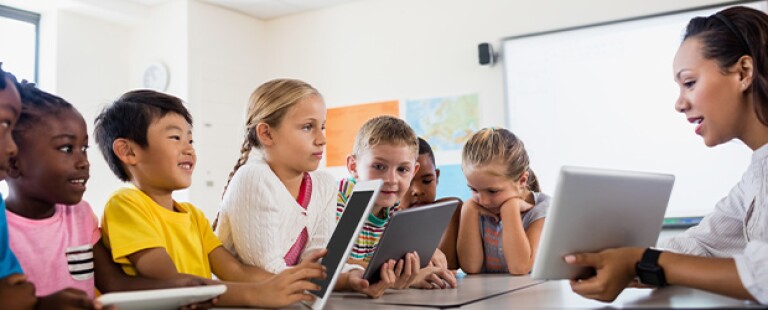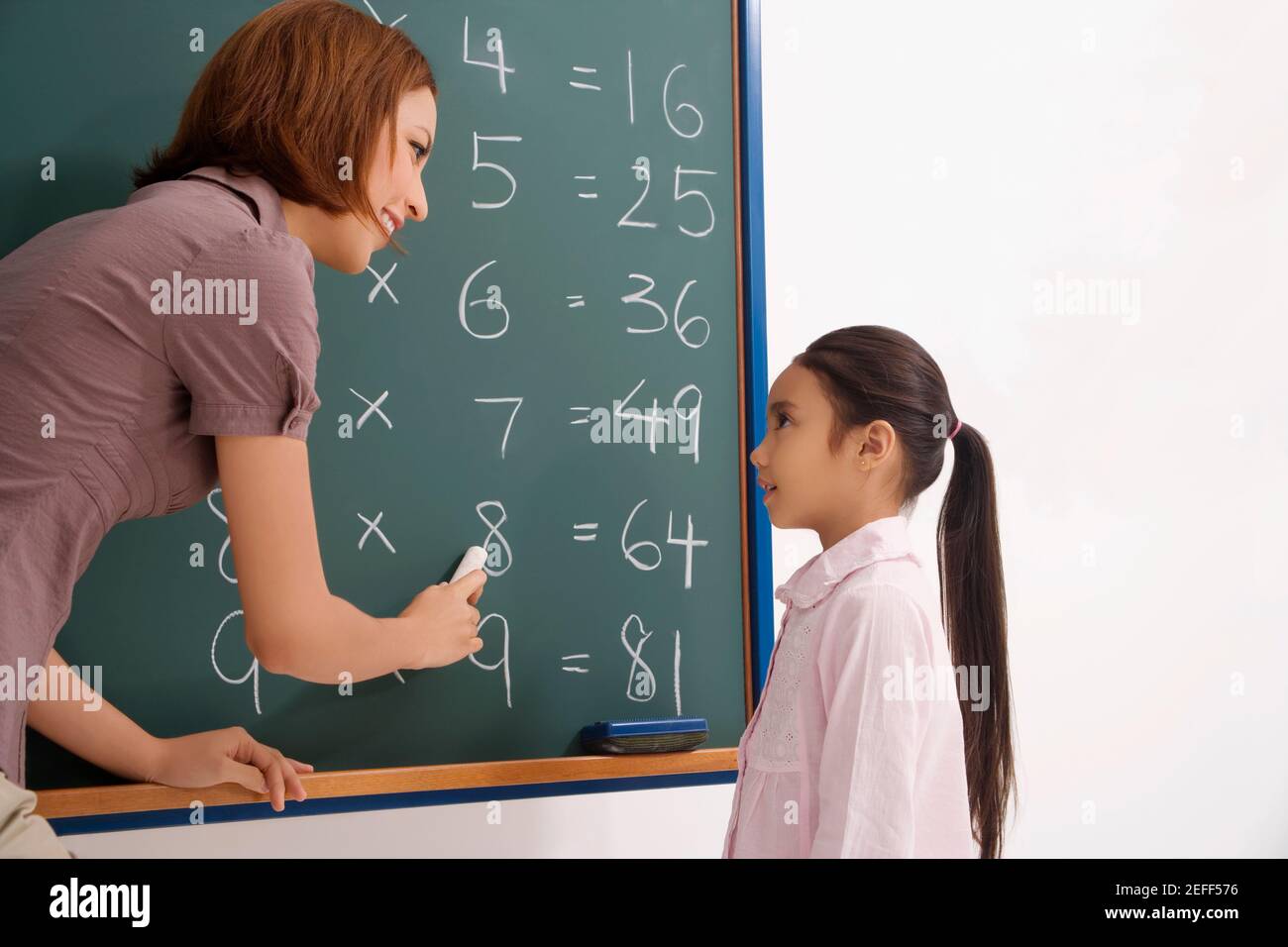Primary Science Tuition Singapore for Building Confidence in Science
Primary Science Tuition Singapore for Building Confidence in Science
Blog Article
Discovering the Various Mentor Techniques in Key Science Education And Learning Today
Inquiry-based knowing, hands-on experiments, and the combination of innovation are redefining just how teachers involve young minds. Additionally, joint methods and separated direction are being employed to cater to the varied demands of pupils, enhancing both interaction and understanding.
Inquiry-Based Understanding
Inquiry-Based Knowing (IBL) is a pedagogical technique that urges trainees to discover scientific concepts with questioning, investigation, and hands-on experimentation. This method stresses the duty of pupils as energetic participants in their discovering, advertising crucial thinking and analytical skills. By engaging with real-world concerns, students come to be interested and inspired, which boosts their understanding of scientific concepts.
In IBL, educators function as facilitators, assisting pupils as they browse their queries as opposed to delivering information directly. This student-centered strategy permits for distinction, accommodating numerous finding out designs and speeds. Students create skills in developing hypotheses, creating experiments, and analyzing information, which are important for clinical proficiency.
In addition, IBL promotes partnership amongst trainees, motivating them to share ideas and findings. This cumulative query promotes social skills and a sense of community within the classroom. The process of questions motivates resilience, as trainees find out to welcome failing as a tipping stone towards understanding.
Hands-On Experiments
Hands-on experiments are a vital part of effective scientific research education and learning, complementing the principles of inquiry-based discovering. These experiments enable pupils to engage straight with clinical concepts, promoting a deeper understanding with experiential understanding. By manipulating materials and observing results, young learners can comprehend abstract theories in concrete means.
Such activities advertise important thinking and problem-solving skills, as trainees hypothesize results, conduct experiments, and analyze outcomes. This process urges them to ask questions, improve their understanding, and create a clinical attitude. Moreover, hands-on experiments can be tailored to varied knowing styles, ensuring that all pupils have the possibility to engage meaningfully with the material.
In addition, hands-on experiments commonly encourage collaboration amongst peers, promoting synergy and interaction skills. Working in groups enables pupils to share ideas, review findings, and gain from each other, which improves their general educational experience.
Integrating hands-on experiments right into the main scientific research educational program not just enhances the discovering setting but likewise cultivates a long-lasting rate of interest in scientific research. By proactively getting involved in their education, trainees are most likely to develop an enthusiasm for scientific query that expands beyond the class.

Innovation Assimilation
Incorporating technology into primary science education has actually come to be progressively necessary in cultivating trainee interaction and enhancing learning outcomes. Using electronic tools, such as interactive simulations, online laboratories, and educational software application, supplies students with possibilities to check out scientific concepts in ingenious means. These resources promote a much deeper understanding of complex subjects by allowing students to picture and adjust variables that would certainly be unwise in a conventional class setting.
In addition, innovation assimilation urges personalized discovering experiences. Trainees can advance at their very own rate, taking another look at challenging concepts through multimedia resources, which accommodate various learning styles. This flexibility not only supports specific development but likewise grows a feeling of autonomy in learners.
In addition, innovation acts as a bridge to real-world science, connecting pupils with present study and expert contributions. Accessibility to scientific journals and on-line data sources broadens trainees' point of views on scientific questions and fosters critical assuming skills.
Collaborative Understanding
Collaborative discovering plays an essential function in key science education by fostering teamwork and communication abilities amongst students. This approach urges learners to work with each other, share knowledge, and take part in analytic, which enhances their understanding of scientific principles. By participating in team tasks, students learn to verbalize their concepts, listen to diverse viewpoints, and negotiate solutions, all of which are essential skills in both real-world and academic contexts.

Research indicates that collective knowing can result in enhanced check it out inspiration and involvement in scientific research topics, as trainees locate pleasure in shared experiences (primary science tuition Singapore). In addition, this technique prepares trainees for future collective endeavors, equipping them with the skills required for effective teamwork in college and expert environments. Ultimately, welcoming collaborative learning in main scientific research education can substantially enhance the learning experience and advertise a much deeper understanding of scientific inquiry
Differentiated Direction

Set apart guideline can show up in various means, such as differing the material, go to my site procedures, or items of learning. For example, instructors might use tiered projects that provide differing degrees of complexity, permitting students to function at their particular preparedness levels. Furthermore, adaptable organizing approaches can assist in cooperation amongst pupils with various abilities, promoting peer discovering.
Analysis plays a crucial function in this technique, as it informs instruction and aids educators recognize each trainee's special needs. Formative assessments, such as observations and quizzes, can direct educators in readjusting their techniques to boost finding out end results. primary science tuition Singapore. Inevitably, by carrying out differentiated instruction in main scientific research education, educators can cultivate a more reliable and equitable understanding setting, equipping all pupils to reach their full capacity in understanding clinical sensations
Conclusion
In summary, the varied teaching strategies in main scientific research education, consisting of inquiry-based discovering, hands-on experiments, technology assimilation, collaborative discovering, and separated instruction, collectively add to a much more effective understanding environment. These methods promote essential reasoning, analytic abilities, and a much deeper comprehension of scientific ideas. By implementing these techniques, instructors can produce interesting and encouraging class that deal with the varied demands of trainees, ultimately cultivating a long-lasting rate of interest in science and improving scholastic success.
Inquiry-Based Understanding (IBL) is an instructional technique that encourages students to discover scientific ideas via wondering about, investigation, and hands-on experimentation.Collective understanding web plays an essential duty in key science education by cultivating team effort and communication skills amongst trainees.Research study indicates that collaborative knowing can lead to boosted motivation and interaction in scientific research topics, as pupils find pleasure in shared experiences.In cultivating an inclusive discovering setting, separated instruction emerges as a vital method to suit the varied needs and abilities of students in primary scientific research education. Ultimately, by applying set apart guideline in main scientific research education, educators can cultivate a more equitable and efficient knowing atmosphere, encouraging all trainees to reach their complete capacity in comprehending scientific sensations.
Report this page